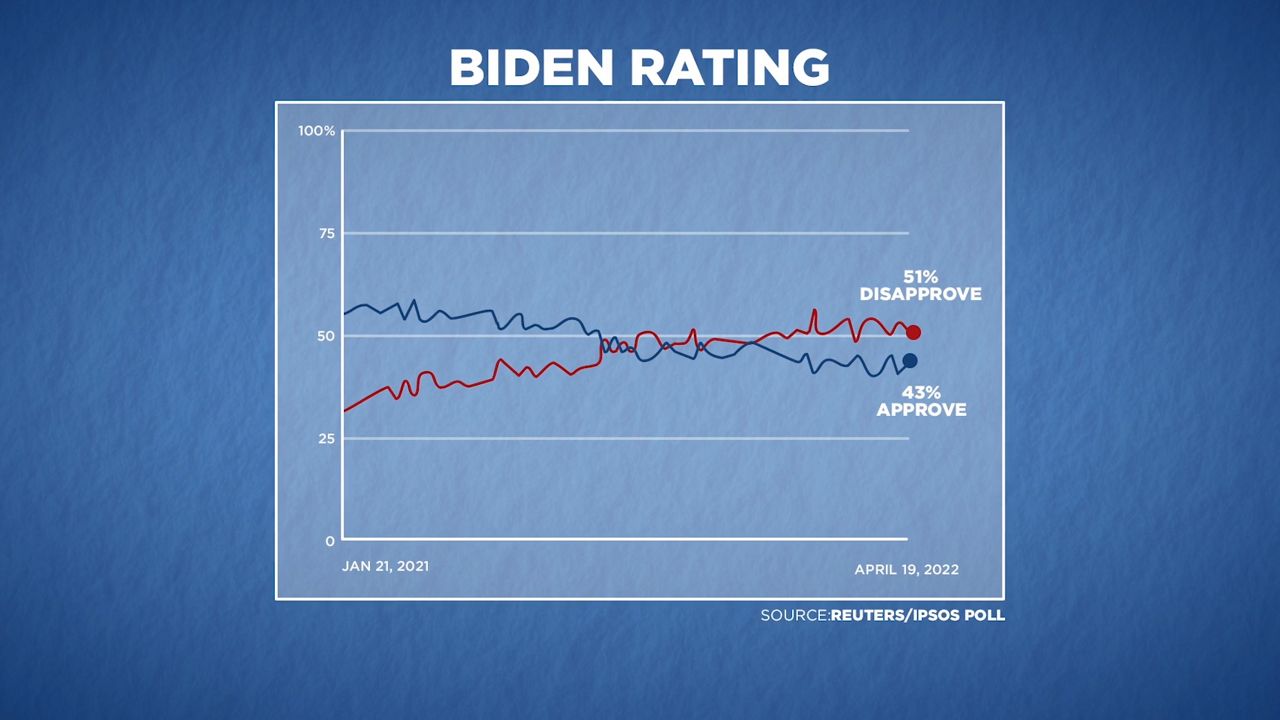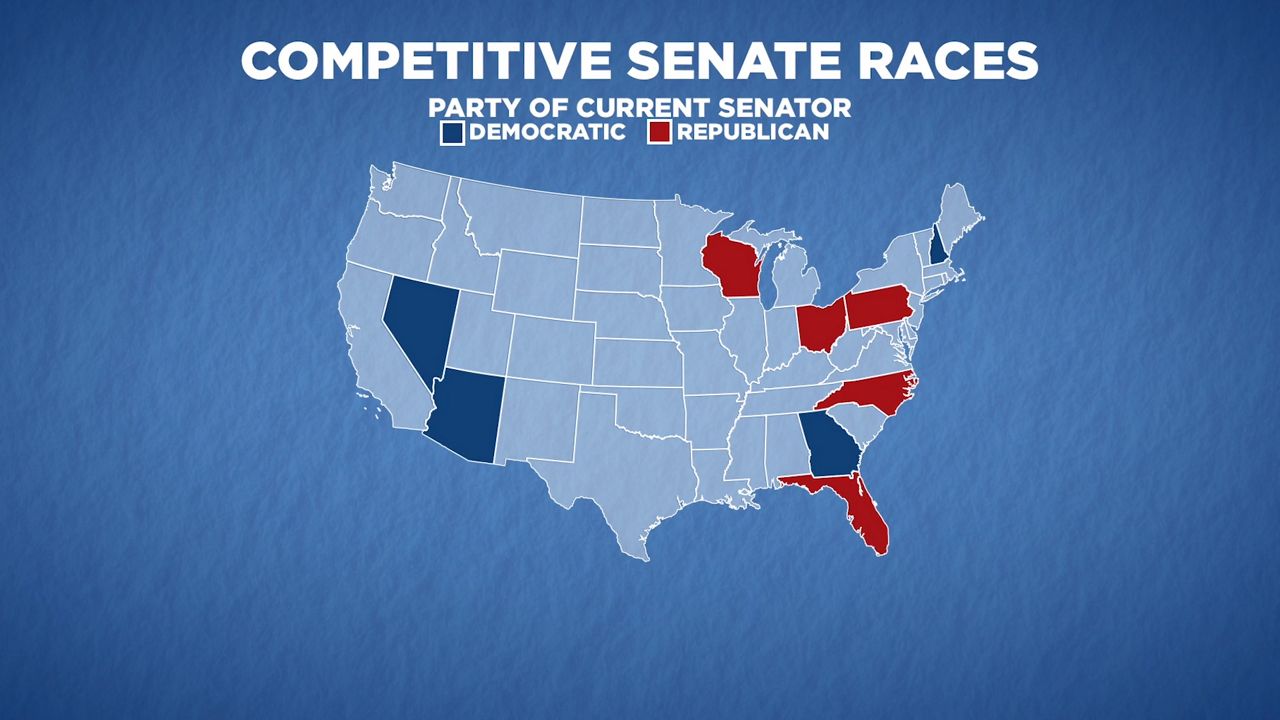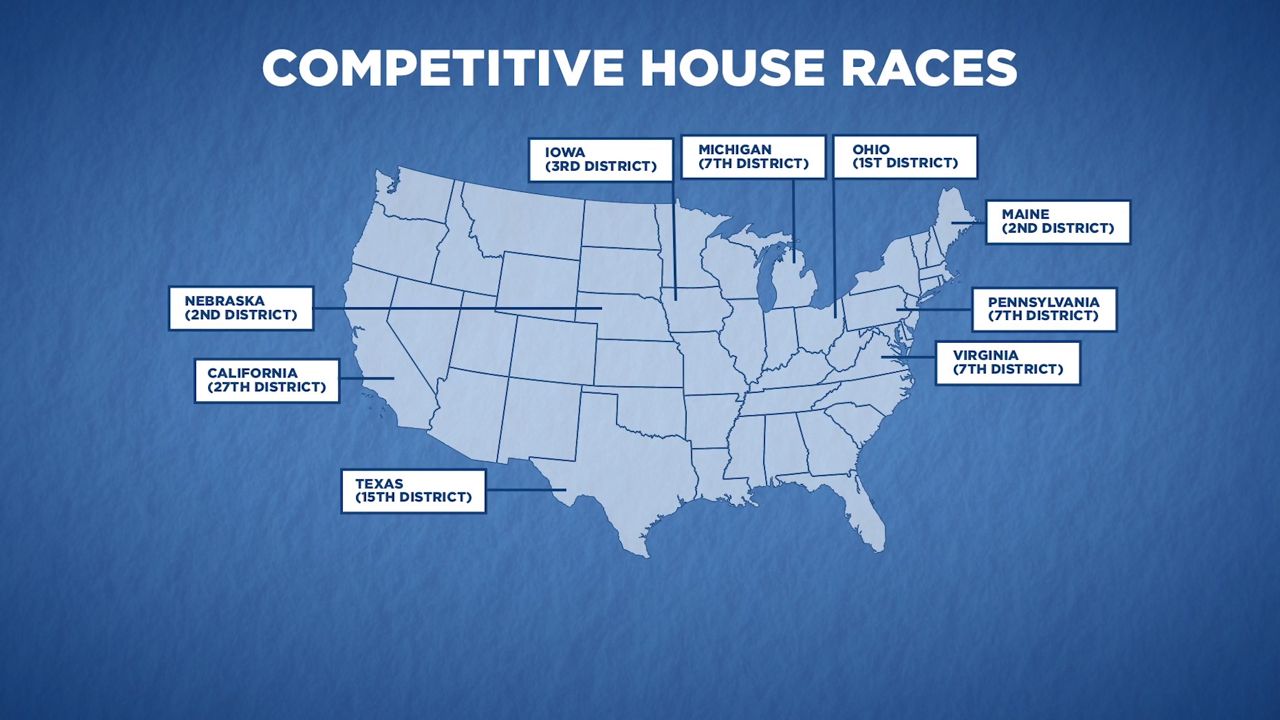As the 2022 midterm elections heat up, signs appear to portend that Democrats are the underdogs in the race to keep or pick up more seats in Congress, experts say.
Currently, Democrats hold a narrow majority in the U.S. House of Representatives at 221 - 209, with five vacancies due to resignations or deaths in office. The Senate is evenly split 50-50 between Republicans and Democrats, with Vice President Kamala Harris breaking ties.
All 435 seats of the House of Representatives are up for election this year, as are 34 Senate seats – but only a small fraction are seen as truly competitive thanks to redistricting trends nationwide.
There are a multitude of factors that may contribute to a GOP sweep of the midterm elections. Historically, the party that wins the White House loses seats in Congress two years later.
Some point to President Joe Biden’s lowering approval ratings as one indication that voters might not be eager to elect Democrats. As of April 19, around 51% of Americans disapproved of Biden’s job performance, while around 43% of Americans approved, according to Reuters/Ipsos data.
The deadly troop withdrawal from Afghanistan and rising inflation inflation appear to be big factors.

“The data for [Democrats] is very bad,” Republican consultant Liz Mair of Mair Strategies told Spectrum News. “The facts are very bad. Voter sentiment is very bad. And I think it's going to be really ugly for them. Really ugly.”
Still, Democrats are more optimistic. Unemployment is low and Biden signed a bipartisan infrastructure bill, although the fruits of that trillion dollar measure aren’t yet always visible.
“You're not seeing these bridges, you're not driving over them,” Democratic consultant Michael Czin of the firm SKDK told Spectrum News. “You will in a couple years, and it will I think have a generational impact. But telling that story on what we've already done and connecting it to people's everyday lives is a challenge that I think we really need to work at.”
Senate Democrats are battling to save seats in Arizona, Nevada, New Hampshire and Georgia. Republicans are trying to hold onto seats in Florida, North Carolina, Ohio, Pennsylvania and Wisconsin.

Some Democratic senators, like Mark Kelly of Arizona, are publicly disagreeing with Biden on some issues, such as the border. Debate over the administration’s plan to end the use of the Title 42 health authority in late May has churned up increasing criticism from Democrats, with Kelly saying he has "more questions about how and when additional resources will hit the ground."
"I have been raising the need for comprehensive planning on the border since early last year. I recently made my fifth visit to the Arizona-Mexico border and I can tell you that folks on the ground don’t feel prepared for this policy change and still see a lack of communication and coordination," Sen. Kelly told Fox News Digital on Wednesday. “We are less than 30 days from the Biden Administration’s self-imposed deadline, and they still have a lot of work to do."
Experts say the end of the “Remain in Mexico” policy will likely bring an influx of migrants to the U.S.-Mexico border. While a battle plays out in federal courts over whether the administration has the authority to end the Trump-era measure, the potential surge could spell trouble for more moderate Democrats from border states like Arizona.
House Democrats are defending a number of districts, especially in the suburbs.

Several states – namely Missouri, New Hampshire, Kansas and New York – are still in the process of redistricting, making it harder to predict which party will have an advantage in those elections. According to a FiveThirtyEight analysis, Republicans will ultimately gain a net four to five seats in Congress thanks to the new lines.
Another factor influencing the midterms is former President Donald Trump, who has endorsed scores of candidates that may be polarizing in November, with their willingness to embrace his false contention that he actually won in 2020 a top endorsement criteria.
But Democrats have had a difficult time running against Trump when he himself is not on the ballot.
What’s more, Republicans are motivated. They’re pushing social debates over LGBTQ+ rights, race and gender education in schools and seizing on inflation and rising crime in cities.
“Biden himself has said that he's not a ‘defund the police’ guy, and I think that that's true,” Mair said. “But that doesn't necessarily mean that he's capable of branding the entire party as being in line with him.”
Biden’s agenda is at stake, from voting rights to climate change. Americans can expect hostile hearings if Republicans take control of the Senate. Impeachment, though remote, is talked about.
Meanwhile, some progressives may sit out the midterms over disappointment Democrats haven’t done more since Biden took office.
“It's going to be a challenging electorate for Democrats,” Czin said. “But there's a long time until votes are cast and counted. So I'm sleeping okay at night so far."



